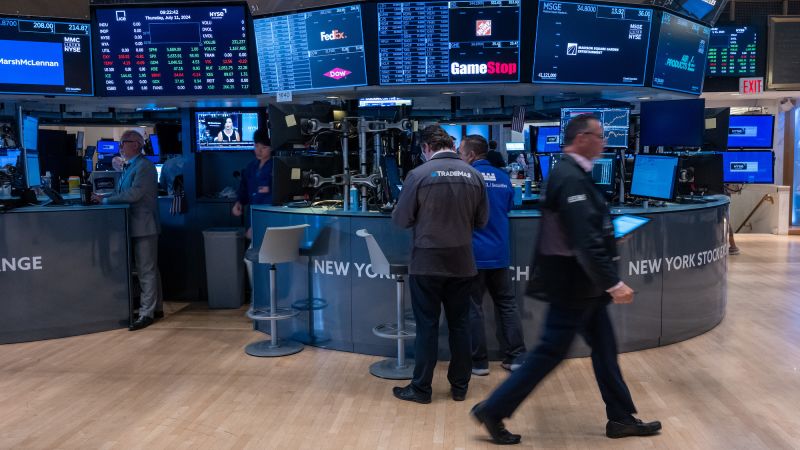US markets rose Monday as investors processed the assassination attempt on former President Donald Trump over the weekend.
The Dow rose 169 points, or 0.4%, paring its gains after hitting a fresh all-time high earlier in the session. The blue-chip index edged above 40,000 again on Friday and extended its rise Monday. The S&P 500 gained 0.2% and the Nasdaq Composite added 0.3%.
Bettors raised their wagers that Trump will win the November election against President Joe Biden: A contract betting that Trump will win went for 67 cents on Monday, implying a 67% chance of the former president winning the election, according to election prediction market platform PredictIt. That’s up from 60 cents on Friday. The price of a contract for Biden’s victory cost 25 cents on Monday.
The US dollar rose 0.2% on Monday morning. The price of bitcoin climbed 3.7%. The Republican Party’s campaign platform promises to “end Democrats’ unlawful and un-American crypto crackdown.”
Shares of Trump Media & Technology Group, the former president’s social media company, popped 35.6%.
A Trump win in November likely means the preservation or expansion of tax cuts and increased tariffs. During last month’s presidential debate hosted by CNN, the former president reiterated his desire to impose a 10% tariff on all imports, which would likely increase inflation and cast doubt on interest rate cuts.
Morgan Stanley research estimates that an expansion of the 2017 tax cuts would boost deficits sharply.
While economic growth sounds positive for the US, some investors worry that it could reaccelerate inflation. The Federal Reserve has hiked interest rates to a painful 23-year high to tame wayward inflation, driving up borrowing costs for everything from mortgages to student loans to auto payments. While the central bank has signaled one rate cut for 2024, rates have yet to budge, as policymakers look for more signs that inflation is cooling.
Economic expansion runs the risk of derailing the central bank’s hard-fought progress.
“A second Trump presidency would mean expansionary economic stimulus in general, lower income taxes, less regulation, and increased tariffs,” wrote Mark Malek, chief investment officer at Siebert Financial, in a Monday note. “With painful inflation still high but possibly on its way out, the economy is in a tender state in which too much growth too fast could lead to the re-igniting of 2022-like price growth spikes.”
This is a developing story and will be updated.
Read the full article here
